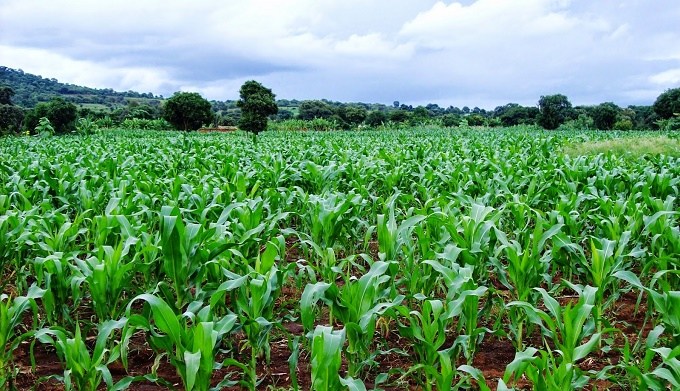Opinion
Setting Agricultural Pace Through Nigeria Varsity Efforts By Sunday ADEAGBO

Nigeria is very blessed with agricultural resources, a large expanse of land estimated at 91 million hectares of which 81 million hectares are arable. Most parts of the country experience rich soil, well distributed rainfall, not to mention the warm year-round temperatures and 18 million hectares of land classified as permanent pasture, for livestock production.
Agriculture has its place in the history of Nigeria, this is the reason for the ‘green’ in the flag, and the progressive roles it has played; serving as the major source of livelihood to over 75% of the population. The agricultural history of Nigeria is intertwined with its political history. This can be assessed from the pre-colonial, colonial and post-colonial periods.
Long before the advent of Nigeria’s colonization, our ancestors were sustained primarily on farming as the major occupation with the use of crude implements compared to what is obtained today. Yet, they produced enough food crops to feed themselves like most other Africans and also produced cash crops which used for trade by barter system, across the Trans Saharan trade to the end of the Atlantic trade. They responded accordingly to the demands of their time, the limitations notwithstanding.
According to Thomas Jefferson, he says that “Agriculture is our wisest pursuit, because it will in the end contribute most to real wealth, good morals and happiness”.
Bill and Melinda Gates is also of the opinion that “investment in agriculture are the best weapons against hunger and poverty and they have made life better for billions of people”.
There are many reasons why a prospective investor should invest in Agriculture. Expert says agriculture is a low risk investment that keeps pace with inflation and increase in value over the long term.
Expert in the field of Agriculture further described investment in agriculture as a tangible assets that provide benefit to the community, adding that it can diversify the investor’s portfolio and guarantee significant revenue for the investor.
The President, Nigeria Cassava Growers Association, Segun Adewumi in an interview with newsmen recently says investment in agriculture is a good money spinner, especially when done adequately. He stressed further that the processing of agricultural commodities by investors can make millions of naira in this line of business.
Segun Akinwumi pointed out clearly in that interview that Nigeria spend up to N 3 billion annually importing products that are generated from processed cassava. He add that if a good investor is a processor of cassava, such an investor can make a commendable income from this line business.
He revealed that ethanol is derived from cassava and Nigeria as a country spend close to 700 billion naira every year importing this product.
Samuel Johnson on his own opined that “Agriculture not only gives riches to a nation or investor but the only riches such a nation or investor can call his/her own”. Some private university in Nigeria key to this statement for greatness.
Bowen University Iwo a private university by the Nigeria Baptist Convention founded in 2001 has an Agriculture venture which established to cater for business projects and this endeavors has enhance the economic sector of the university. According to research report, some of the short term projects that have been sustained over the years in the university include the production of fisheries, poultry, crops, wood work and bakery products.
The bold step by Bowen University Iwo has enhanced agricultural leadership of the surrounding communities according to news report by helping them to imbibe the spirit of adventure, innovations and increased reliance of the uses of modern business techniques in agricultural and marketing processes in Iwo community.
Afe Babalola University Ado- Ekiti owned by a prominent legal luminary founded in 2009 operate a school farm known as ABUAD farm with a 1000 hectare farm which is an interesting place to visit.
The university engage herself in various agricultural business such as fish production, moringa farming, piggery, mushroom farming and lot more.
Recently, Afe Babalola University proprietor signed a three – years partnership deal with international institute for tropical Agriculture(IITA) , International Fund For Agriculture Development (IFAD), and Africa Rice on engagement of youths in Agric business.
The founder of the university stressed the need for a paradigm shift from the erroneous perception that farming is not a better business, stating that agriculture remains a potent weapon of improving socio-economic development, promising to restore the lost glory of agriculture to what obtained during the golden era when it was the mainstay of the economy of Nigeria.
A visit to Landmark University Omu- Aran kwara State founded in 2011 show that the university farm currently operates on a 302 hectares with two section such as Animal and crop unit with 82.3 hectares cultivated with maize, 50 hectares with soya beans, 10 hectares for varieties of vegetables, fish ponds and 30 hectares divided places contain the poultry pens.
Various private universities in Nigeria that was granted operational license by NUC can be a pace setter by going into cassava and maize farming using the undeveloped land in their various institution which run to hectares for annual cultivation of Agricultural produce taking Afe Babalola University Ado Ekiti as a good example with their excellent performance in producing various Agricultural product by the College of Agriculture in school with the efforts of the proprietor which is a great practicing farmer in the school.
Sunday ADEAGBO write from Osogbo.
wereloluwase@gmail.com.
-

 News4 days ago
News4 days agoRamadan, Lent: Shettima Calls For National Unity And Compassion
-

 Opinion4 days ago
Opinion4 days agoReinventing Osun’s Economy Through Dagbolu Intl. Trade Centre: From Quiet Market Lessons To Regional Trade Revolution By Adeboye Adebayo
-

 News4 days ago
News4 days ago‘Wike Factor’: Another PDP Chairmanship Candidate Steps Down For APC In FCT
-

 News3 days ago
News3 days agoInsecurity: Kogi Schools Resume On Monday















1 Comment